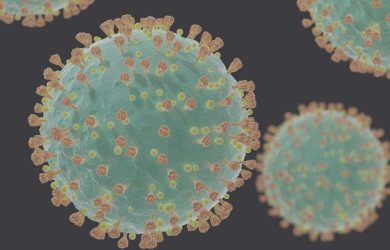
Annalijn Conklin is researching how social factors such as where you live affect your mental health.
While Annalijn Conklin was growing up, she saw her mother and her best childhood girlfriend suffer from a number of progressive chronic illnesses.
During childhood, Annalijn’s mother was in and out of hospital due to an auto-immune disease called SLE (lupus). Because of this and other chronic illnesses, Annalijn’s mother was interested in complementary medicine for her own self care and to help other women improve their health and wellbeing.
From an early age, Annalijn developed a sensitivity to how constant pain can be debilitating and socially isolating for people and how resulting depression can influence a person’s lifestyle ‘choices’ which in turn have a knock-on effect on their physical health.
Her personal experiences have had a profound impact on Annalijn’s academic career and are the driving force behind her research. At Cambridge she will study for a PhD in Medical Science at the MRC Epidemiology Unit focusing on patterns of individual dietary ‘lifestyle choices’ and how these are influenced by multiple social determinants, particularly the contribution of the physical environment.
Born in Leamington, Ontario, near Point Pelee National Park, Annalijn grew up in the small Canadian town of Kingsville. The area was mostly farming territory and Annalijn says she was always outdoors and liked to climb trees. “We had horses and cats and goats. Once there was even a family of raccoons that moved into a tree outside our house,” she says.
At school, she took up martial arts, theatre, drumming and other activities. She also took part in a model UN in Montreal, representing the small country of Rwanda when she was at high school for which she received an outstanding achievement award.
An only child, she was quite studious with strong support from her parents, especially her father who is a professor of law. His research focus is more on the human experience, than the rules, of law: “He is very much interested in the crossover of law with philosophy and in issues of social justice,” says Annalijn, who shares his interests.
However, it was her mum who had the greater impact on her future research career in the field of health. A former social worker, she gave up her private practice to bring up Annalijn. From her mother, Annalijn learned of the importance of promoting healthy behaviour to prevent chronic illness. “There is no cure, only more palliative type care. So the best cure is prevention,” she says.
Influenced by her father’s work in philosophy and her mother’s own work around women’s health and wellbeing, she was initially interested in studying Ayurvedic medicine, with its emphasis on holistic health and the mind-body connection. “I was interested in how emotions and the mind affected physical health,” she says.
For this reason, she started her undergraduate career at the University of Toronto studying religion and philosophy. However, she found that religion was not for her and switched mid-course to include biology, graduating magna cum laude with a double honours in biology and philosophy. After some work experience and living in Vancouver, she applied to do graduate research at various universities and was accepted at Edinburgh, Imperial and Columbia.
Columbia allowed her to defer a year so she decided to pursue the one-year masters at Edinburgh before going on to Columbia since the Edinburgh degree involved only bench research which she had missed out on at undergraduate level due to the high course requirements for the additional biology major. It was a valuable experience, if only because it showed her that lab-based research was not for her.
It was not until she went to graduate school at Columbia that she realised her vocation was in public health. “Columbia was a turning point for me,” she says. “I really felt I had found my calling.” She says her fellow students were very much socially driven and she felt she was among a diverse group of like-minded people who believed strongly in improving people’s lives through better health.
She finally graduated in 2007 and it was then that she travelled to Europe to be with her mother who had split up from her father and recently returned to Holland after a couple years in the Dutch Caribbean. She had emigrated from Canada to live in Aruba so she could improve her health by, she would say, “defrosting her arthritic joints and bones”. Annalijn says she had been very anxious for her mother at the time because of her exposure to a number of tropical diseases which made living there a greater risk to her health, given her low immune system. Although she had hoped to find a job in Holland, she was offered only internships since her Dutch was not sufficient to secure an employed position. But the contacts she made during informational interviews and a conference in Amsterdam led her to apply to the research consultancy RAND Europe in Cambridge where she has been working as a policy analyst in health and healthcare for the past four years. Shortly after starting work at RAND, Annalijn’s mother died from a heart attack which she expects was caused by multiple, interconnected factors.
Her PhD will allow her to explore her research interests in more depth by taking a broad approach to health and she is very excited to be a Gates scholar and says she could not have studied at Cambridge without it.
Her research will look at how various social level factors such as social deprivation and where you live, influence your ability to choose a healthy diet. “It’s not just about an individual’s socio-economic status, but about how our physical and social environment affect our so-called lifestyle choices,” she says.
While at RAND she has been involved in a not-for-profit programme in London called One Degree which involves her acting as a mentor for refugee and ethnic minority children about to take their GCSEs. “The idea is that if you can change their grades by one degree that can be the difference between them failing or passing and can change their lives,” she says.
She attributes her interest in such social justice issues to her father, but it is her mother who she says is her “inspiration”. “She was on her own dealing with her illnesses. She was a powerful advocate for prevention and for women’s health and well being.”
Picture credit: graur razvan ionut and www.freedigitalphotos.net.












